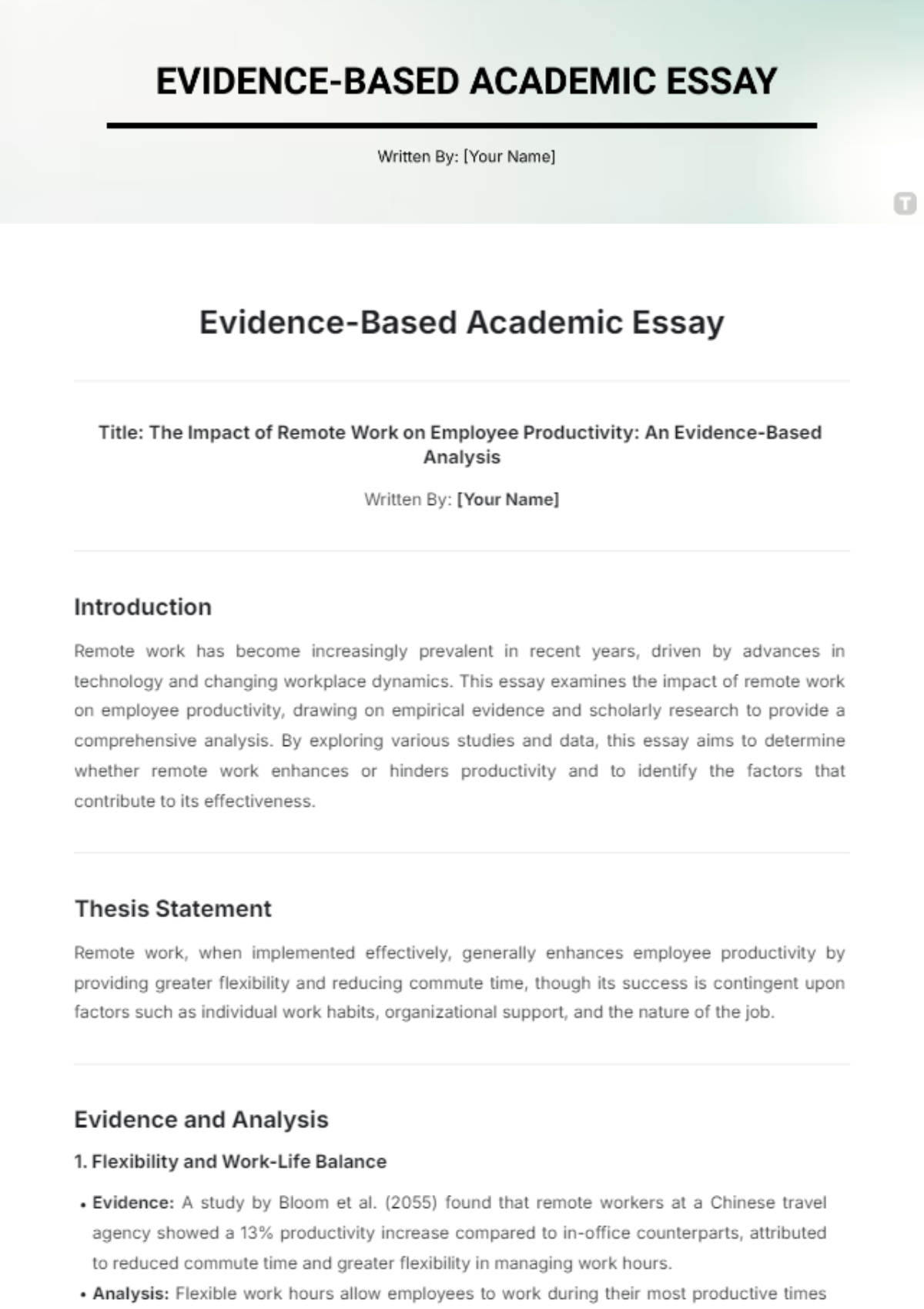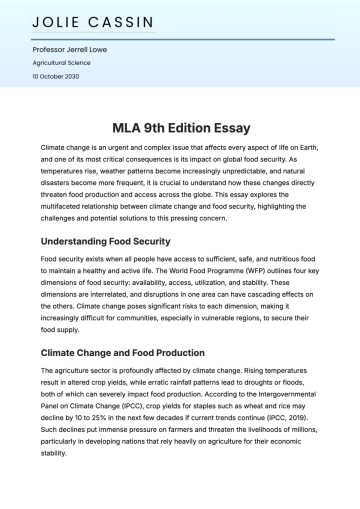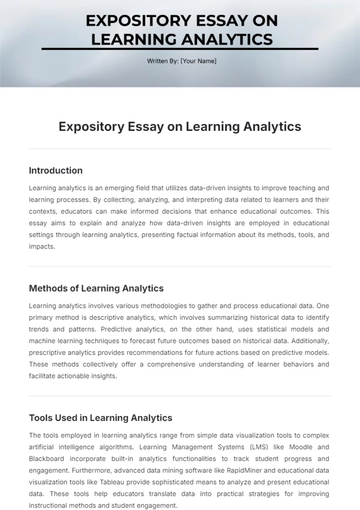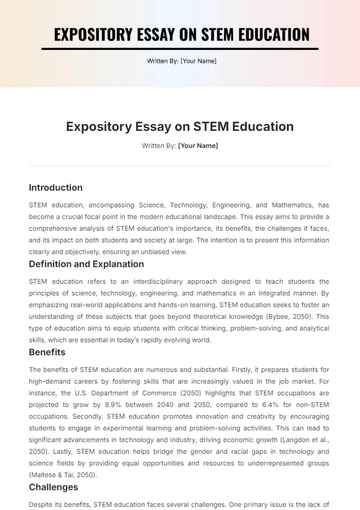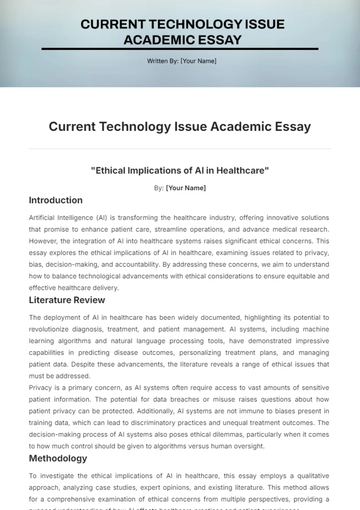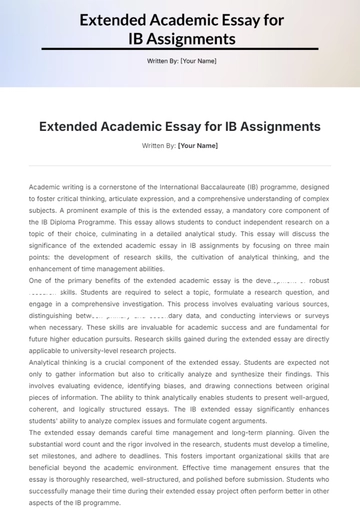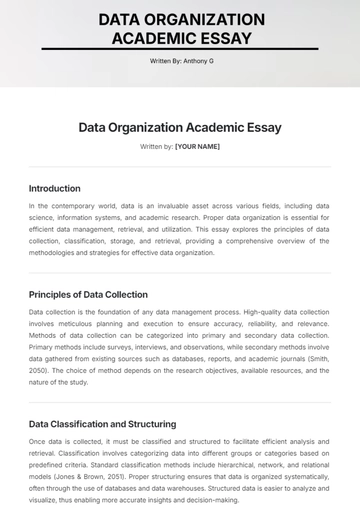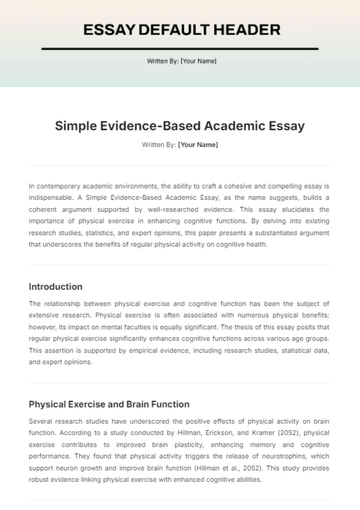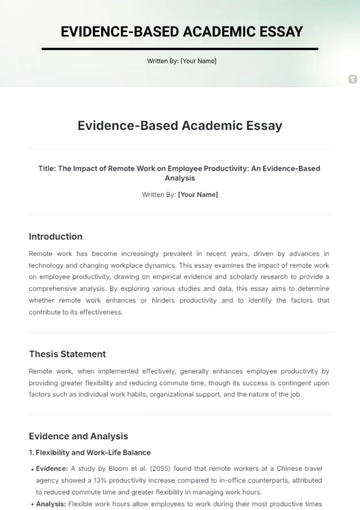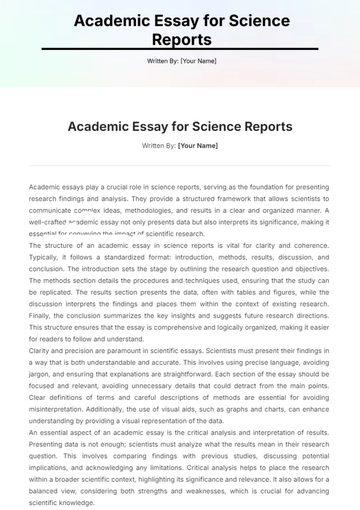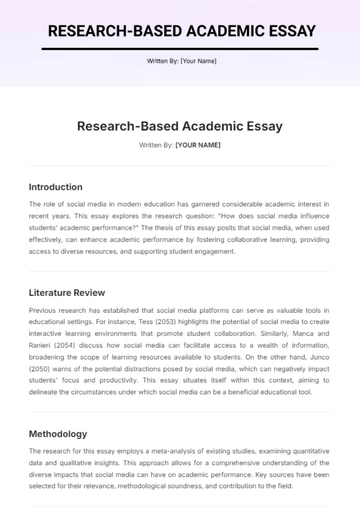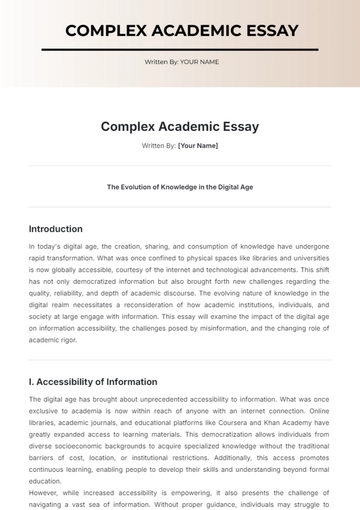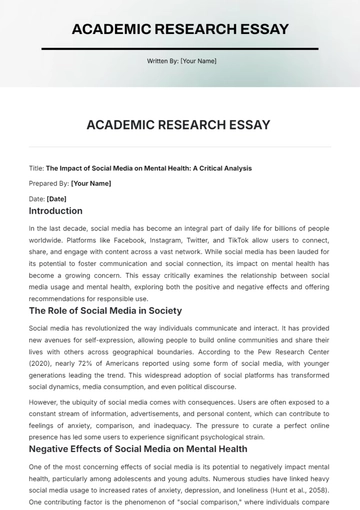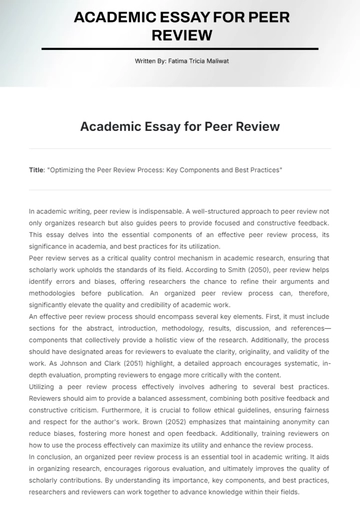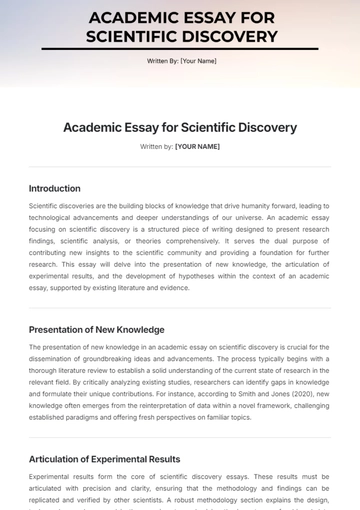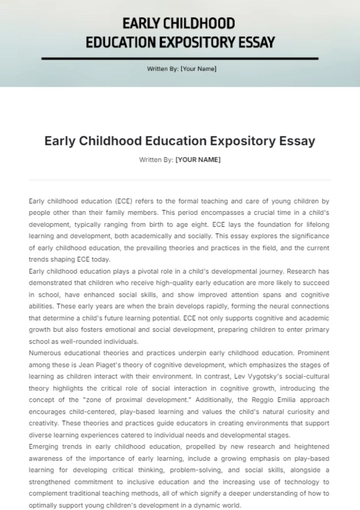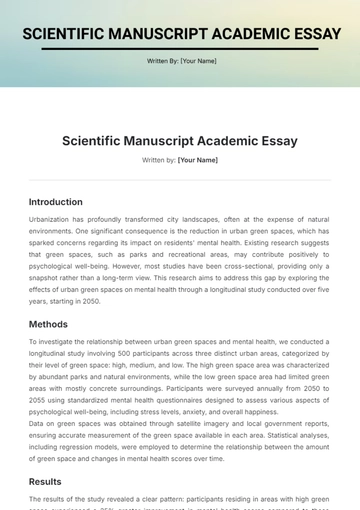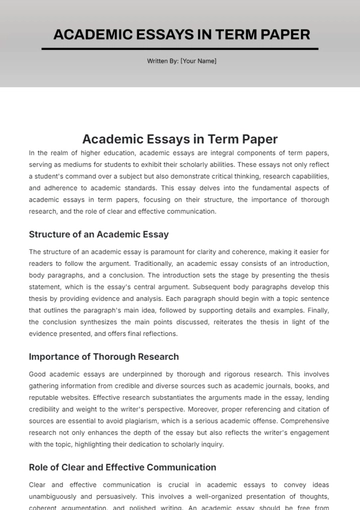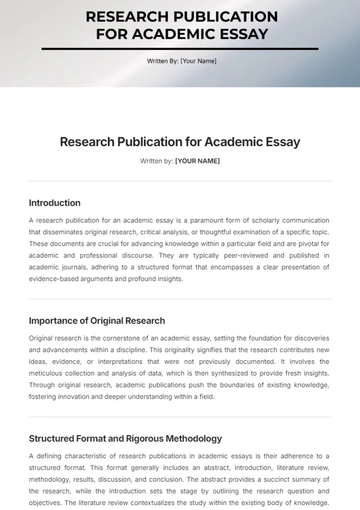Evidence-Based Academic Essay
Title: The Impact of Remote Work on Employee Productivity: An Evidence-Based Analysis
Written By: [Your Name]
Introduction
Remote work has become increasingly prevalent in recent years, driven by advances in technology and changing workplace dynamics. This essay examines the impact of remote work on employee productivity, drawing on empirical evidence and scholarly research to provide a comprehensive analysis. By exploring various studies and data, this essay aims to determine whether remote work enhances or hinders productivity and to identify the factors that contribute to its effectiveness.
Thesis Statement
Remote work, when implemented effectively, generally enhances employee productivity by providing greater flexibility and reducing commute time, though its success is contingent upon factors such as individual work habits, organizational support, and the nature of the job.
Evidence and Analysis
1. Flexibility and Work-Life Balance
2. Reduced Commute Time
3. Individual Work Habits
4. Organizational Support
5. Nature of the Job
Conclusion
The evidence suggests that remote work when managed effectively, can enhance employee productivity by providing greater flexibility, reducing commute time, and offering opportunities for improved work-life balance. However, its success is influenced by individual work habits, organizational support, and the nature of the job. Organizations looking to implement remote work policies should consider these factors to maximize productivity and ensure that employees have the necessary resources and support to thrive in a remote environment.
References
Bloom, N., Liang, J., Roberts, J., & Ying, Z. J. (2055). Does working from home work? Evidence from a Chinese experiment. Quarterly Journal of Economics, 130(1), 165-218.
Essay Templates @ Template.net
